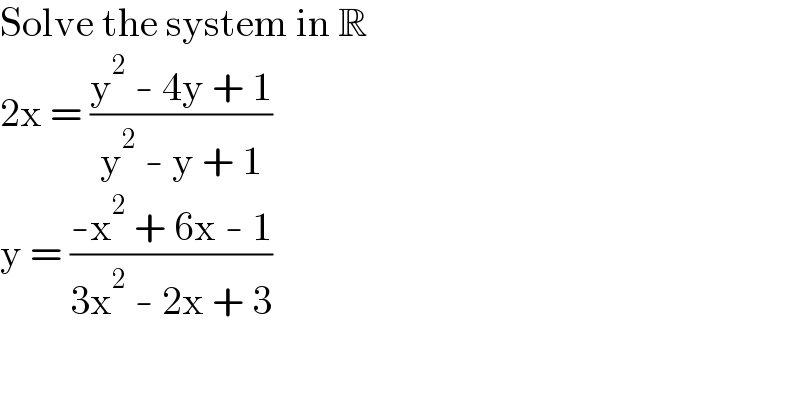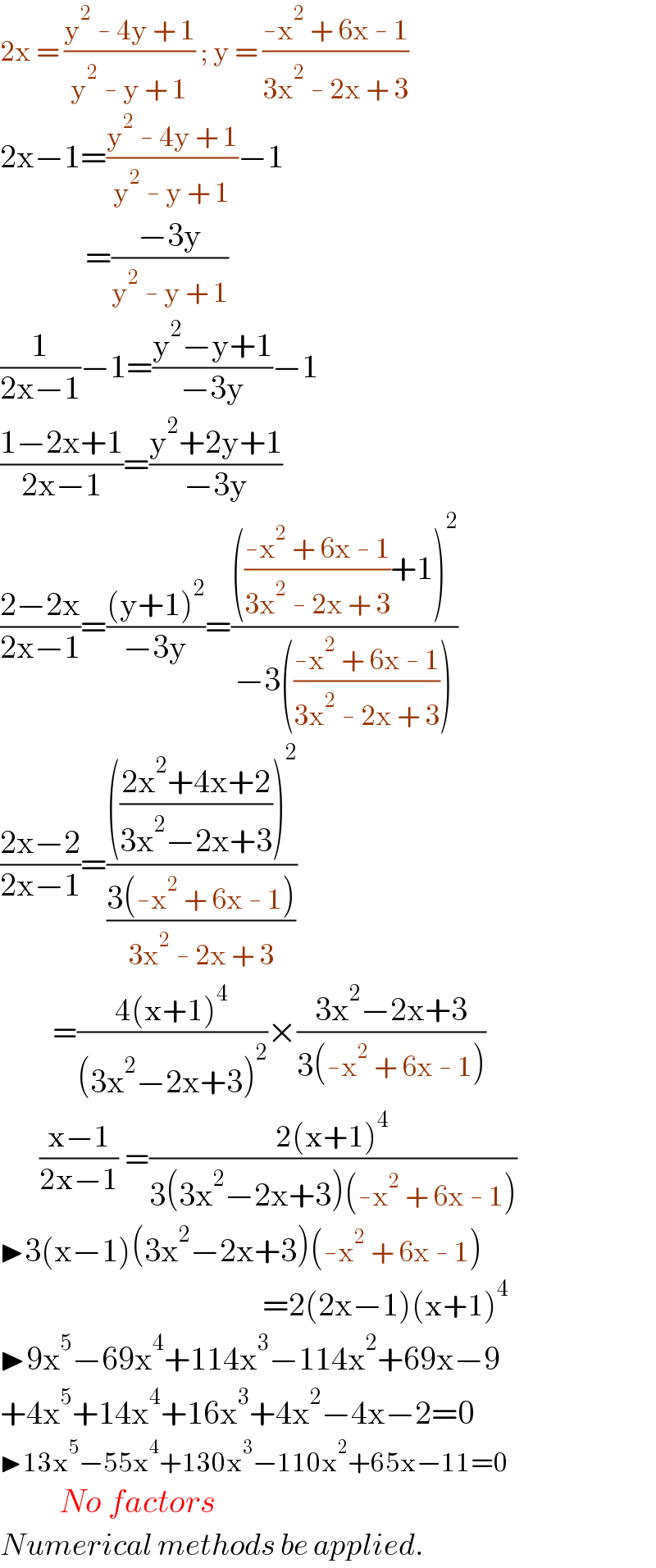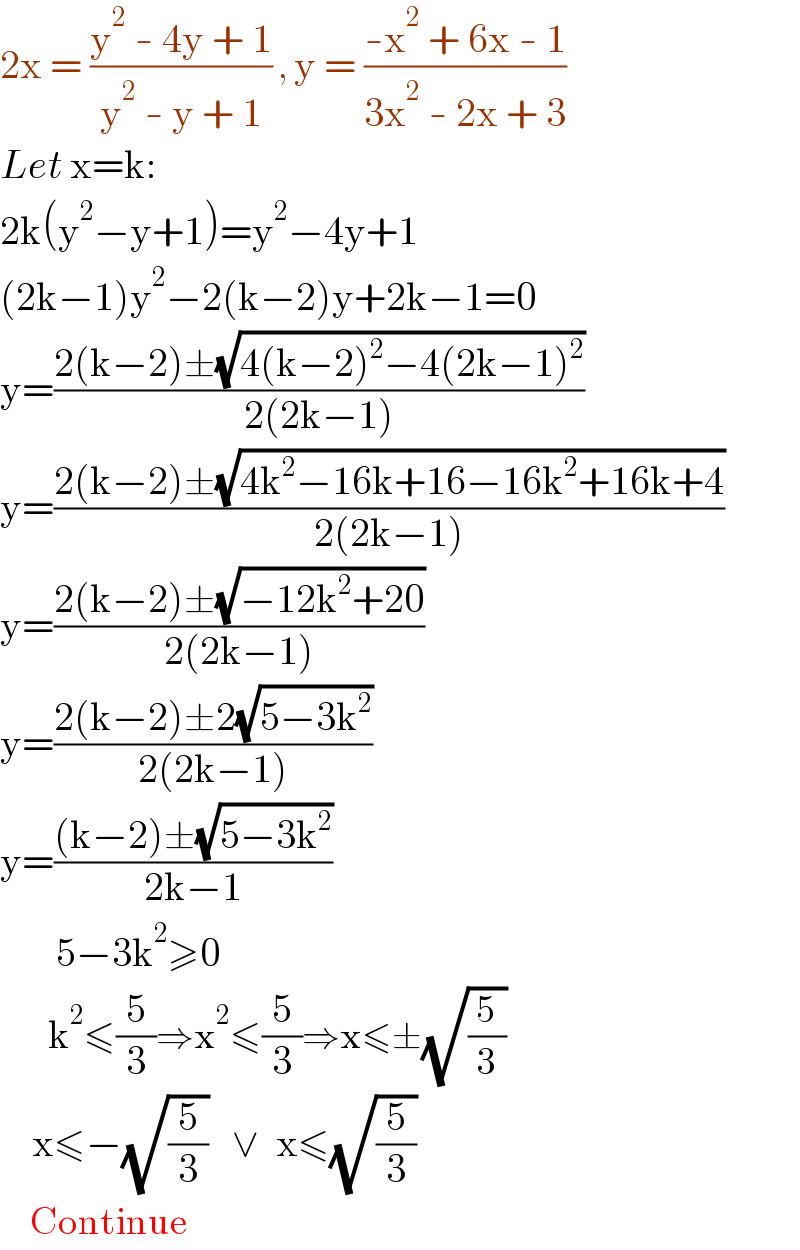
Question and Answers Forum
Question Number 154986 by mathdanisur last updated on 23/Sep/21

Answered by Rasheed.Sindhi last updated on 25/Sep/21

Commented by mathdanisur last updated on 25/Sep/21

Answered by Rasheed.Sindhi last updated on 24/Sep/21

Commented by mathdanisur last updated on 24/Sep/21

